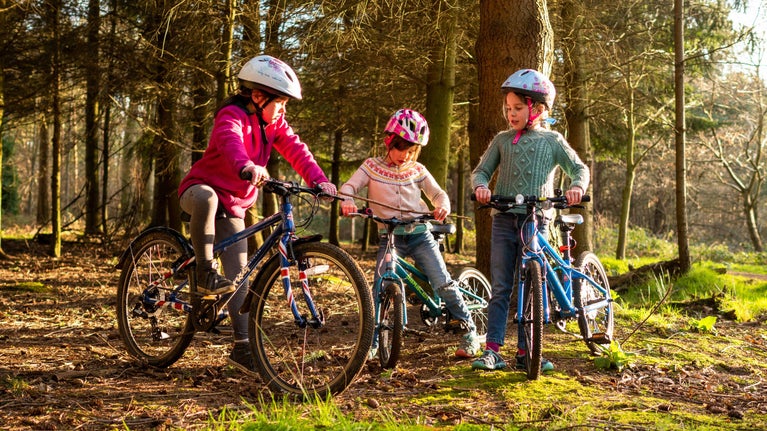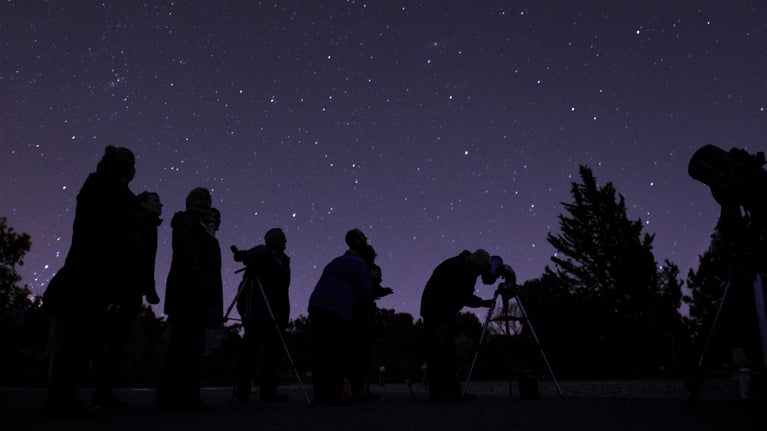
‘50 things to do before you're 11¾’
Have fun exploring nature and the great outdoors with our list of ‘50 things to do before you're 11¾’.

Stargazing is a magical way to bring science to life and experience the beauty of the natural world. Looking up at space's great canopy is a powerful experience. Discover our tips on the constellations to look out for.
Grab your coats, find a cosy spot to lie down outside or look out of your window. The longer you look up, the more stars you’ll discover. As you gaze, try and enjoy the moment – how does it make you feel? What words can you use to describe your special view? Connect the dots of different stars and see which shapes you can make. You could draw them in a star diary.
Groups of stars make shapes called constellations. Different constellations can be seen in the night sky at different times of year and in different parts of the world. Some are easier to spot than others – see our guide to common constellations below. If you’re lucky, you may even get to see a shooting star whizz across the sky. What will you wish for?
These constellations are easy to recognise in the sky and have been admired for many hundreds of years.

Have fun exploring nature and the great outdoors with our list of ‘50 things to do before you're 11¾’.

As the tide goes out, the secrets of the sea are revealed in rock pools left behind. Exploring the wonders of a rock pool is no. 37 of the ‘50 things to do before you’re 11¾’.

Discover what’s in a pond by scooping out some water and identifying what's beneath the surface. It's No. 35 of the ‘50 things to do before you’re 11¾’.

Learn some top tips for nature spotting, track animal footprints and identify common types of animal poo in no. 34 of our ‘50 things to do before you’re 11¾’ challenge.

Camp under the trees at Brownsea Island, Dorset and uncover the history of the Scouts movement in 'Escape to adventure island'. You can also find more episodes from series seven, filled with nature and history.